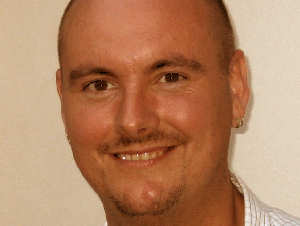The science delusion has made God redundant
 Regular Network Norfolk columnist James Knight continues his series on the myth of secular progression with a look at the idea that the more we know scientifically, the less we need to know God. Regular Network Norfolk columnist James Knight continues his series on the myth of secular progression with a look at the idea that the more we know scientifically, the less we need to know God.
In keeping with my ‘myth of secular progression’ series, another misapprehension we often see is that as we’ve become more scientifically advanced we have had more and more reason to serve God His redundancy notice. By that the atheists must mean that the more we understand about the cosmos the more evidence we have that it can run by itself. As a philosophical proposition this is riddled with mistaken thinking. Let me explain.
Science is a tool of description; and so far as we can make sense of them, the big answers to the questions of “Why there is something rather than nothing?” are based on our ideas about absolute necessity (what we call Aseity). Given that science deals only in terms of tools of description, a man would be pretty poor at philosophy if he thought that improved and refined descriptions gave him any special information about whether or not God is the creator. For example, take something like genetics; laws of genetics hold because they are consistent with ideas about heredity and variation, our understanding of DNA, and the whole suite of microorganisms that make up biological parts. But however far one zooms in, the study of leptons, quarks, protons, electrons, neutrons, atoms, molecules, cells or organisms won’t give us logical necessity.
Being human, limited to human conceptions of reality, we only see ‘logical necessity’ in a very abstruse way, but it is the kind of thinking that leads us as far as we can go. The reason being - leptons, quarks, protons, electrons, neutrons, atoms, molecules, cells and organisms haven’t an existence based on logical necessity, and neither do planets, stars, galaxies, or even nature herself. Their non-existence would not violate any fundamental force of logic that we can understand – they could just disappear and there is no violation of logic. Now, ‘existence’ is for us a concept that cannot logically be expunged from the picture, because the picture of reality is an absolute – it’s just that we don’t know what form that absoluteness takes. As far as logical consistency goes – existence is a logically continuous process, and the logical necessity of the ‘is-ness’ of reality remains as relevant today as it did in Bronze Age times.
The philosophically illiterate want to have you believe that science has offered us more grandeur in explaining reality. If they mean we have a more formally crystallised descriptive tool and more sophisticated apparatus with which to refine our tools of description (nobody knew about things like leptons, quarks, protons, electrons, and neutrons in the Bronze Age) then they are correct. But if they mean that science has offered us more grandeur in explaining the ‘is-ness’ of reality (and often they do mean this) then they are not dealing with these questions of ‘existence’ properly.
We are used to speaking evidence in empirical studies – after all, science is our most empirically accurate and reliably testable descriptive heuristic so it can seem like an ideal template to pursue questions about God. There is one problem though – Science gives us a way to acquire mutually consensual evidence, because the claims being made can be subjected to rigorous examinational scrutiny. This is not the case with a personal relationship with God. In science the truth or falsity of a claim is contingent on empirical accuracy, how well the claims stand up to prediction, and consistency with the other subset factors within that model. The better a theory the greater its predictive value in so far as it produces accurate and useful forecasts that one can anticipate, test and then verify or falsify. With theories such as motion, gravity, and evolution our predictions are always confirmed with localised evidence and simple mathematical equations. In the case of Newtonian planetary laws, all orbits for anything we observe are forbidden to act in a way that departs from the predictions and implications of Newton’s laws. In evolution we know that taxonomic ranks are consistent (kingdom, phylum, class, order, family, genus, species) and we know that genetic sequencing and our observations of the tree of life are consistent with each other. Every species that is supposed to have evolved from its ancestors fits into the tree of life exactly as is expected if we are genetically related – there are no inconsistencies or anomalies. We can simply emulate this model in our considerations of whether or not Christianity is true, right?
 Wrong. Theological claims are of a different kind of evidence. With claims about religious belief there is often a drive towards finding all sorts of evidence beyond the sphere of the sciences – and what we’ve said already will hold us in good stead, as we combine what we’ve covered already about knowledge with how we justify the terms and conditions for evidence. Despite the insistences from the positivists, a comprehensive understanding of reality is beyond science, even if science one day extends our knowledge to as far as scientific analysis can take us with descriptive expositions. Remember, descriptive accounts do not give us the ‘why’ answer, only the ‘how’. The true explanation of existence isn’t a scientific question it is a philosophical question – but even the philosophical method might not bring us logical closure. Every time we create a question about reality we look to see if science can answer it, and if science cannot, we turn it into a philosophical question. But notice that even if science finds an answer to the question, that answer will lead to further corollary questions, which in turn lead to answers, which are then questioned, and so on. Scientists want to answer all questions; philosophers want to question the questions and the answers. Wrong. Theological claims are of a different kind of evidence. With claims about religious belief there is often a drive towards finding all sorts of evidence beyond the sphere of the sciences – and what we’ve said already will hold us in good stead, as we combine what we’ve covered already about knowledge with how we justify the terms and conditions for evidence. Despite the insistences from the positivists, a comprehensive understanding of reality is beyond science, even if science one day extends our knowledge to as far as scientific analysis can take us with descriptive expositions. Remember, descriptive accounts do not give us the ‘why’ answer, only the ‘how’. The true explanation of existence isn’t a scientific question it is a philosophical question – but even the philosophical method might not bring us logical closure. Every time we create a question about reality we look to see if science can answer it, and if science cannot, we turn it into a philosophical question. But notice that even if science finds an answer to the question, that answer will lead to further corollary questions, which in turn lead to answers, which are then questioned, and so on. Scientists want to answer all questions; philosophers want to question the questions and the answers.
Theologians arguably take things one step further – they deal with questions and answers not just in terms of the descriptive facts of nature – they deal with them in terms of telic purpose and personal involvement. They are interested in the ‘why’ question as much as they are the ‘how’. For the person who believes in God, the answers to life’s big questions are seen not just in terms of external observations, but with deep consideration of the ‘I’ one calls the self and whether that ‘I’ is related to any grander purpose beyond humanly constructed conceptions. Those who claim that increased scientific knowledge gives us greater grounds for atheism only show that they do not understand science, philosophy or God.
The views carried here are those of the author, not of Network Norwich and Norfolk, and are intended to stimulate constructive debate between website users. We welcome your thoughts and comments, posted below, upon the ideas expressed here. You can also contact the author direct atjames.knight@norfolk.gov.uk
James is a Christian writer and local government officer based in Norwich. You can access his current collections of columns here
Meanwhile, if you want to find out more about Christianity, visit: www.rejesus.co.uk |